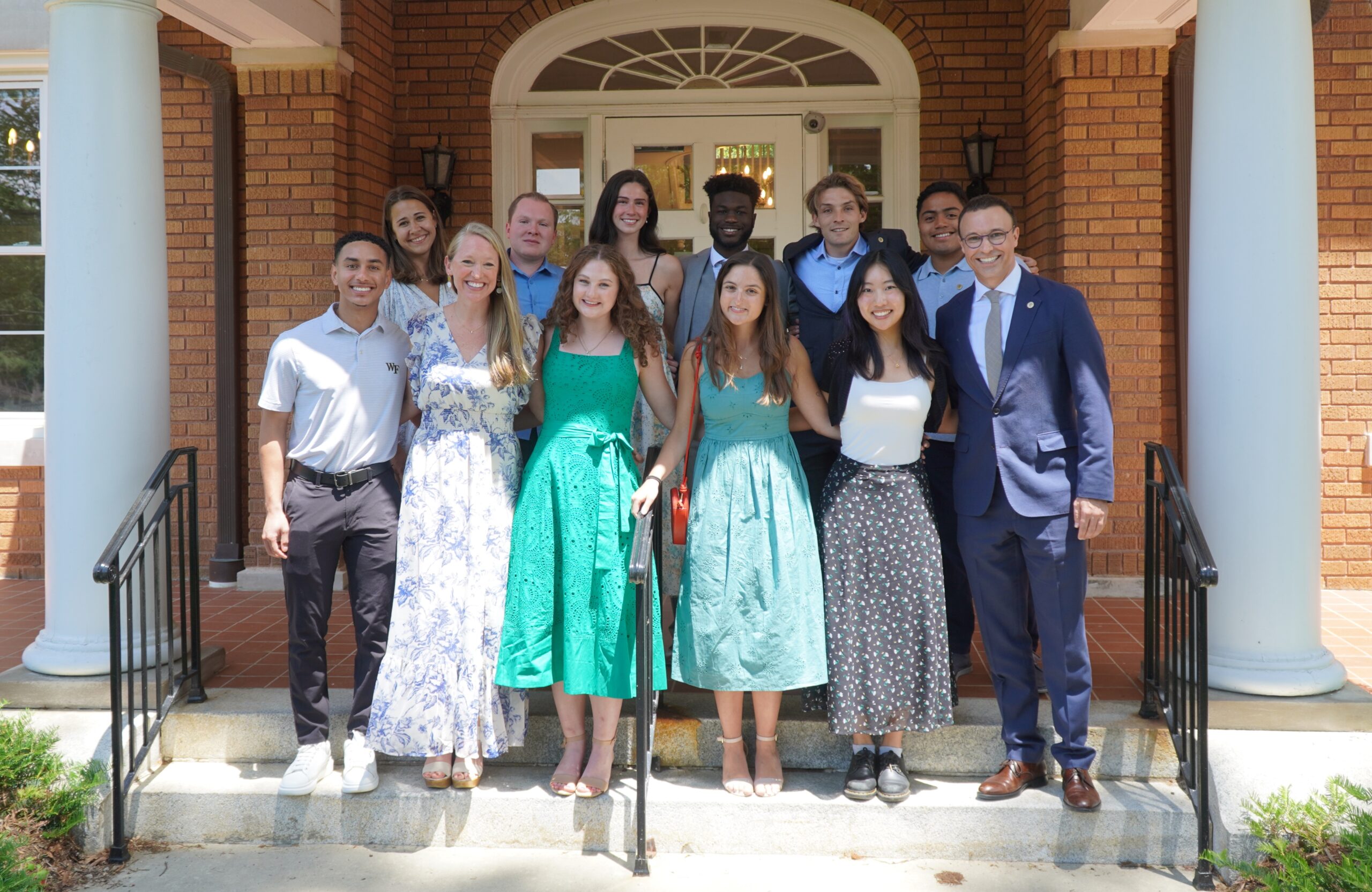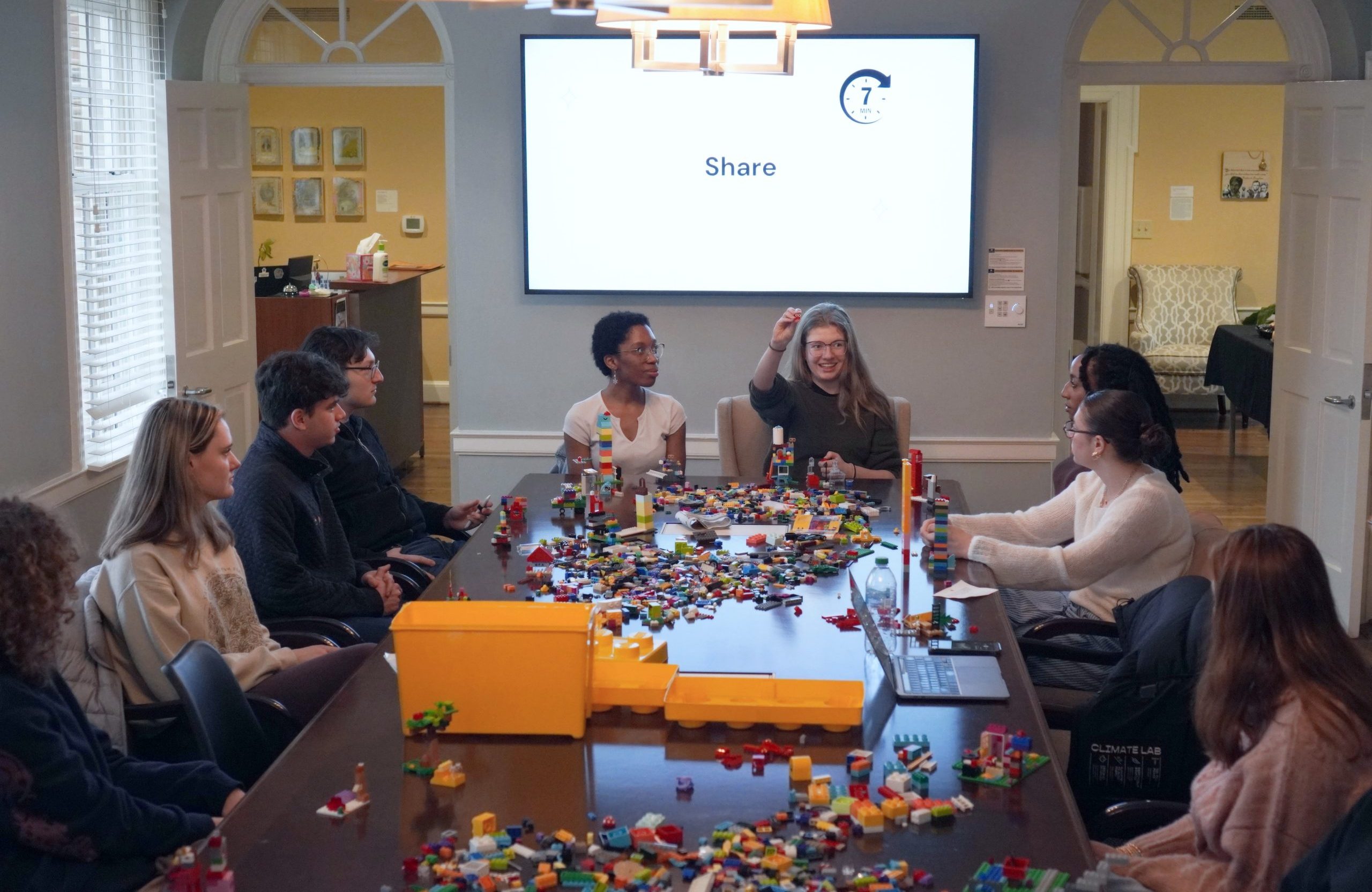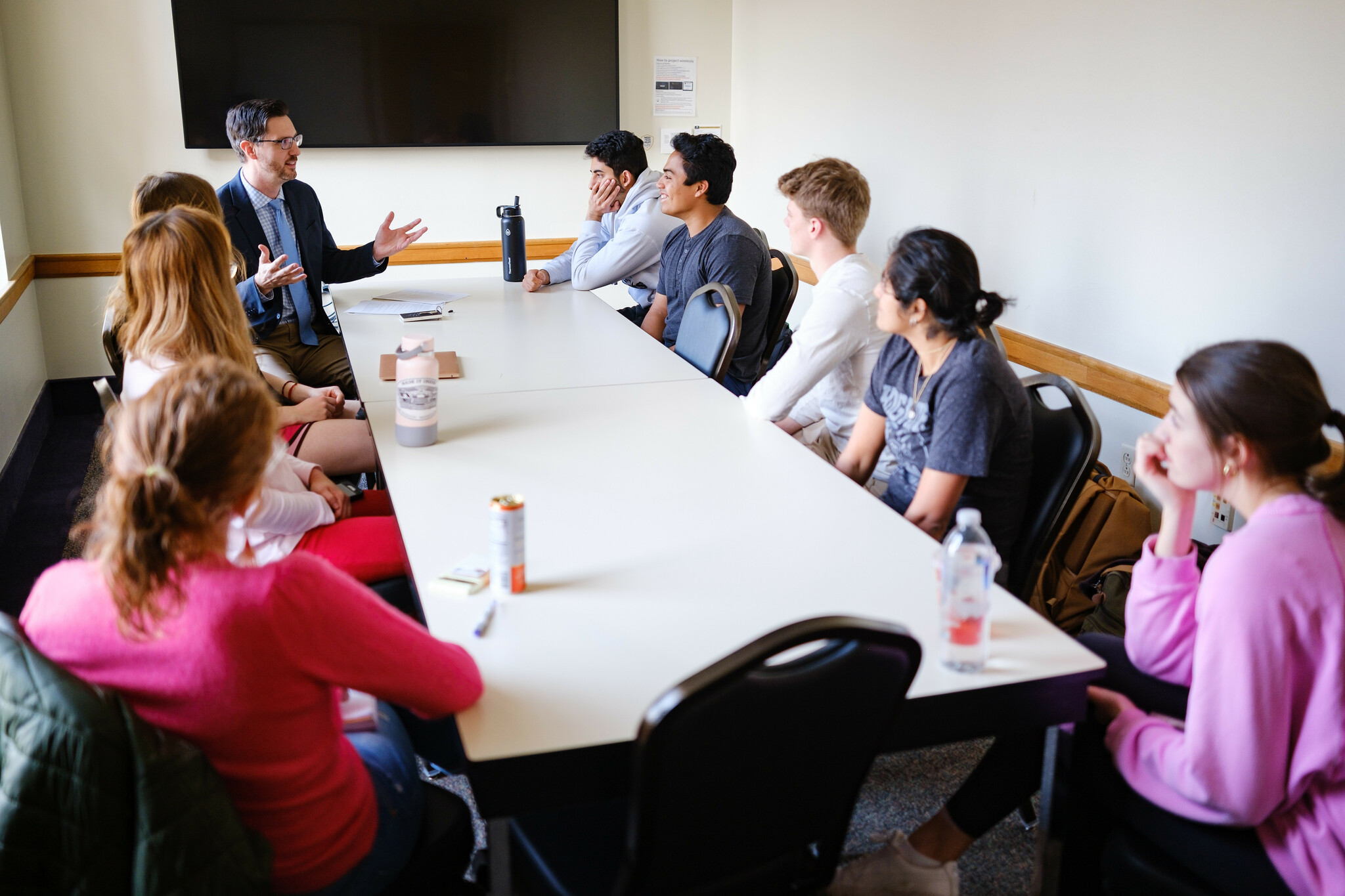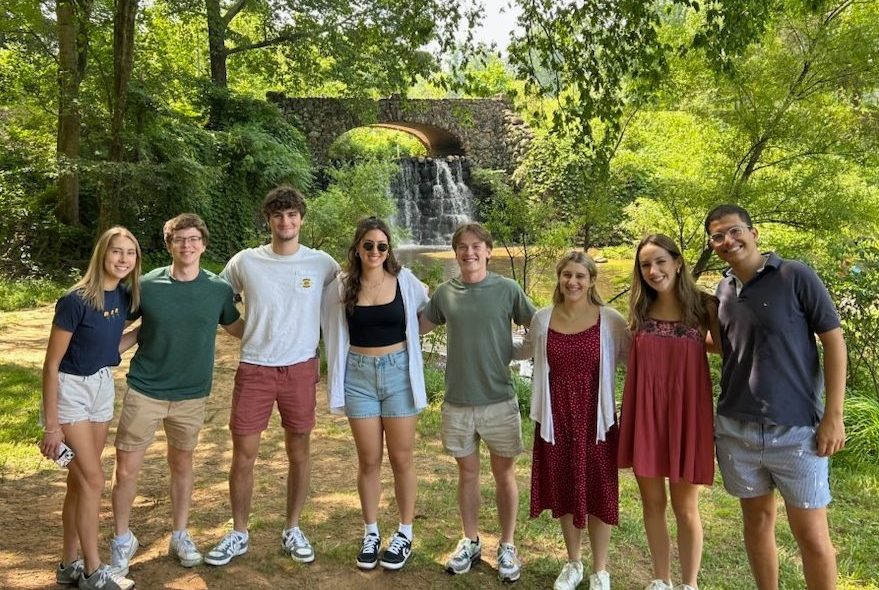Other Initiatives
The Program for Leadership and Character partners with student organizations, academic departments, and campus offices to facilitate leadership and character development through workshops, retreats, panels and presentations. Some of the topics include:
- “Friendship in the Lives of Leaders” at the Wake Forest Leadership Summit, led by Michael Lamb
- “Virtues, Values, and Vocation,” with the Office of Wellbeing, led by Ann Phelps
- “Leading with Authenticity,” with Wake Forest Athletics, led by Raven Scott
- “Deconstructing Diversity,” with the Leadership and Character Scholars, led by Donovan Livingston
- “The Virtue of Love in the Christian Life,” led by Bradley Burroughs
How does creativity, performance, and expression impact our character? How do music, theatre, literature, dance, and visual art help shape our culture and experience of the world? How do artists lead?
The Program for Leadership and Character explores these questions by partnering with students, community members, academic departments, and campus initiatives that bring the arts into every corner of Wake Forest. Student actors sit on panels to explore the way that rehearsing a role instills their sense of empathy. Student painters and photographers respond to prompts to create visual art pieces that line the walls of Starling Hall. Student dancers take time away from the rigor of ballet studios to write memoirs on how such discipline and hard work has shaped them both on and off the stage. And researchers among faculty, staff, and students explore how the arts impact who we are individually and communally.
In our arts programming, we strive to respond to students’ interests and energies, so if you have ideas or inspiration for creative programming around character you would like to lead, please contact Ann Phelps at phelpsa@wfu.edu.
In partnership with the Chaplain’s Office, Divinity School, and a variety of partners across campus, the Program for Leadership and Character offers a number of opportunities for students to reflect upon their religious traditions, the meaning of life, and how they might lead and grow in ways that honor their understanding of the sacred. Central to these efforts are discussion groups on “Spirituality, Religion, and the Quest for Character,” led by Dr. Bradley Burroughs.
The Program for Leadership and Character strives to respond to the interests of students, faculty, and staff when designing programs and initiatives. Often we partner with other offices around campus, such as the Women’s Center, the Office of Diversity and Inclusion, or the Office of Student Engagement. You might see us presenting at the annual Presidents’ Leadership Conference, facilitating interdisciplinary collaborations, or offering one-on-one student mentoring in both formal and informal settings. Dr. Bradley Burroughs directed the Program’s efforts to create resources designed to help students, faculty, and staff cultivate the virtues that might enable them to meet the challenges occasioned by the COVID-19 pandemic. If you have an idea for a partnership or program related to ethical leadership or character development, please reach out to Ann Phelps at phelpsa@wfu.edu.




